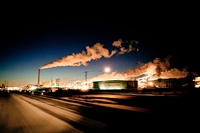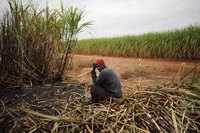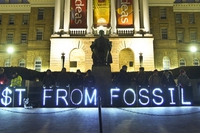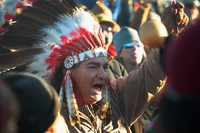
The 2020 US elections seen from around the world of sustainability
With a clearer picture of the results, how have countries across the world reacted to the 2020 US elections? What expectations face president-elect Biden?
With a clearer picture of the results, how have countries across the world reacted to the 2020 US elections? What expectations face president-elect Biden?
We must decide: in a post-Covid world, will we put emphasis on sustainability to achieve a green recovery or dust ourselves off and continue as before?
AXA, one of the world’s biggest financial services companies, is dumping investments in tar sands and ending insurance for controversial oil pipelines, taking fossil fuel divestment to new heights.
We talk to Samir de Chadarevian, an expert in sustainable development, philanthropy, impact investing and social innovation.
We can learn a lot from philanthropists and families investing their money for the future of all of us. We talk about this with Gamil de Chadarevian, founder of GIST Initiatives.
How do wealthy families invest their capital? Fortunately, impact investing is an increasingly common choice. An anticipation of some of the most important findings.
More and more wealthy families care about our Planet. Data emerged from the Investing for Global Impact prove this.
In the next few months LifeGate will host a series of in-depth analyses on philanthropy and impact investing. This section is supported by Investing for Global Impact, a global research published by The Financial Times in partnership with GIST (Global Impact Solutions Today) and with the support of Barclays. Why philanthropy and impact investing, together In
AXA Investment Managers, a France-based investment service provider, has pledged to divest 165 million euros (175 million dollars) of its fixed-income portfolios and 12 million euros (13 million euros) of equities portfolios as a result of its new coal policy. It announced that it won’t invest in companies that derive more than 50 per cent of their
The Bakken or Dakota Access Pipeline (DAPL), an underground oil pipeline project in the United States, is owned by a network of oil and pipeline companies, joint ventures and holding companies. After Trump revived it in January without the consent of the Sioux indigenous tribe affected by it and flouting environmental laws, many investors both from the US








